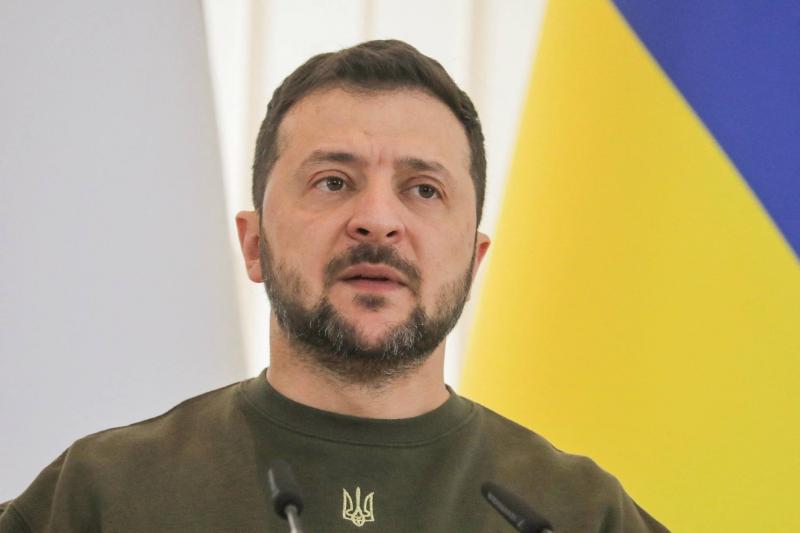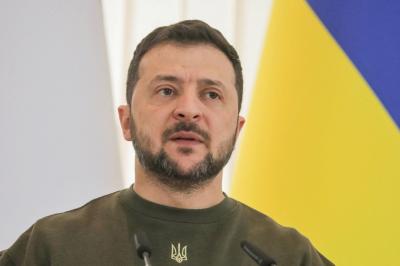Ukrainian President Volodymyr Zelensky stated on Friday that Russian forces lost at least one of their brigades while attempting to advance towards the town of Avdiivka in eastern Ukraine. The Ukrainian presidential office reported Zelensky's comments during a phone call with British Prime Minister Rishi Sunak, where he mentioned, "The invaders have attempted several times to encircle Avdiivka, but each time our soldiers stopped them and pushed them back, resulting in painful losses. In these instances, the enemy has lost at least one brigade."
The Institute for the Study of War, a U.S. non-profit research group, noted on Thursday that Russia has suffered significant losses in equipment near Avdiivka, which "is likely to undermine Russian offensive capabilities in the long term."
In a briefing on battlefield developments on Friday, the Ukrainian General Staff reported that the army "maintains its defensive position and inflicts significant losses" on Russian forces, adding that the Russians have not relented in their attempts to encircle the city.
The Russian assault on Avdiivka has become a focal point in the battle after about five months of Kyiv launching a counter-offensive. Local and military authorities in Ukraine indicated that Russia renewed its campaign to encircle the city in mid-October, attempting to target Ukrainian positions with a barrage of artillery fire and a flow of troops and combat vehicles.
Avdiivka is located approximately 25 kilometers from Donetsk and is surrounded by Russian-controlled territory to the north, east, and south, leaving Ukrainian forces with only the western part of the town for supplies and evacuation of residents. The town has been under attack since 2014 when the conflict first erupted between Ukraine and Russian-backed forces. Vitaliy Barabash, head of the military administration in Avdiivka, stated that the new attacks to gain control of the town are the largest since 2014.




